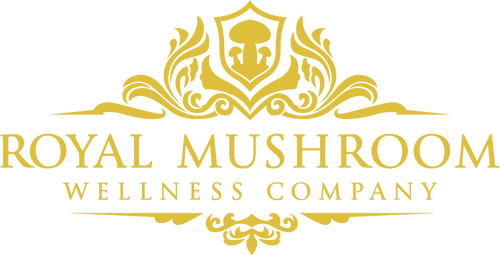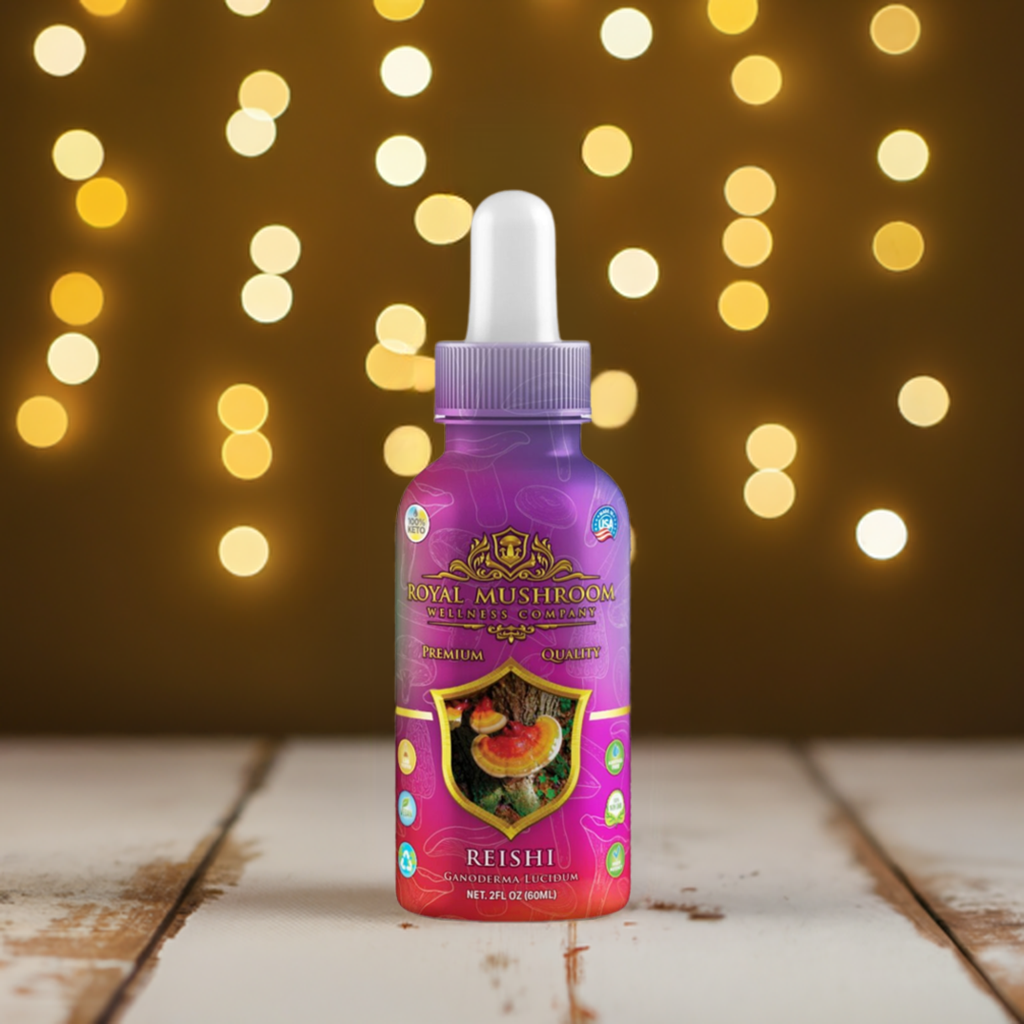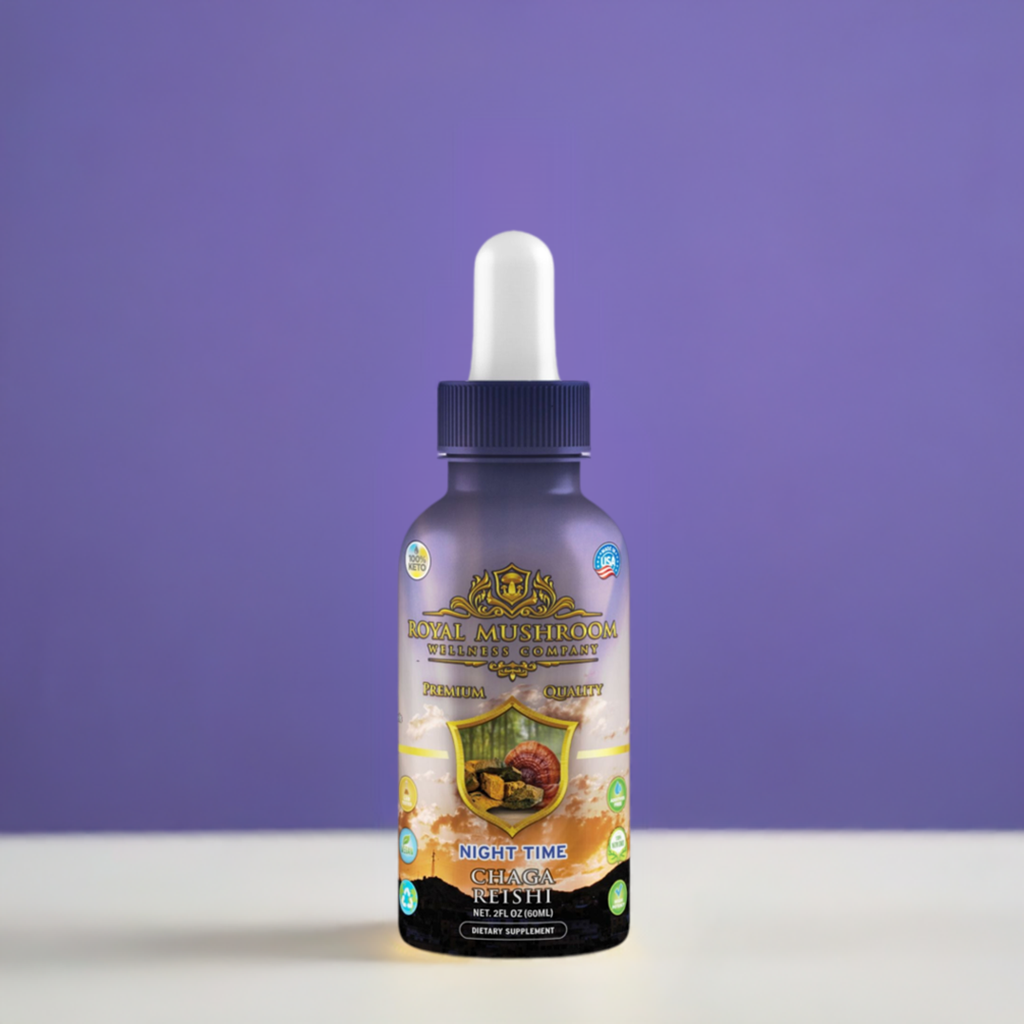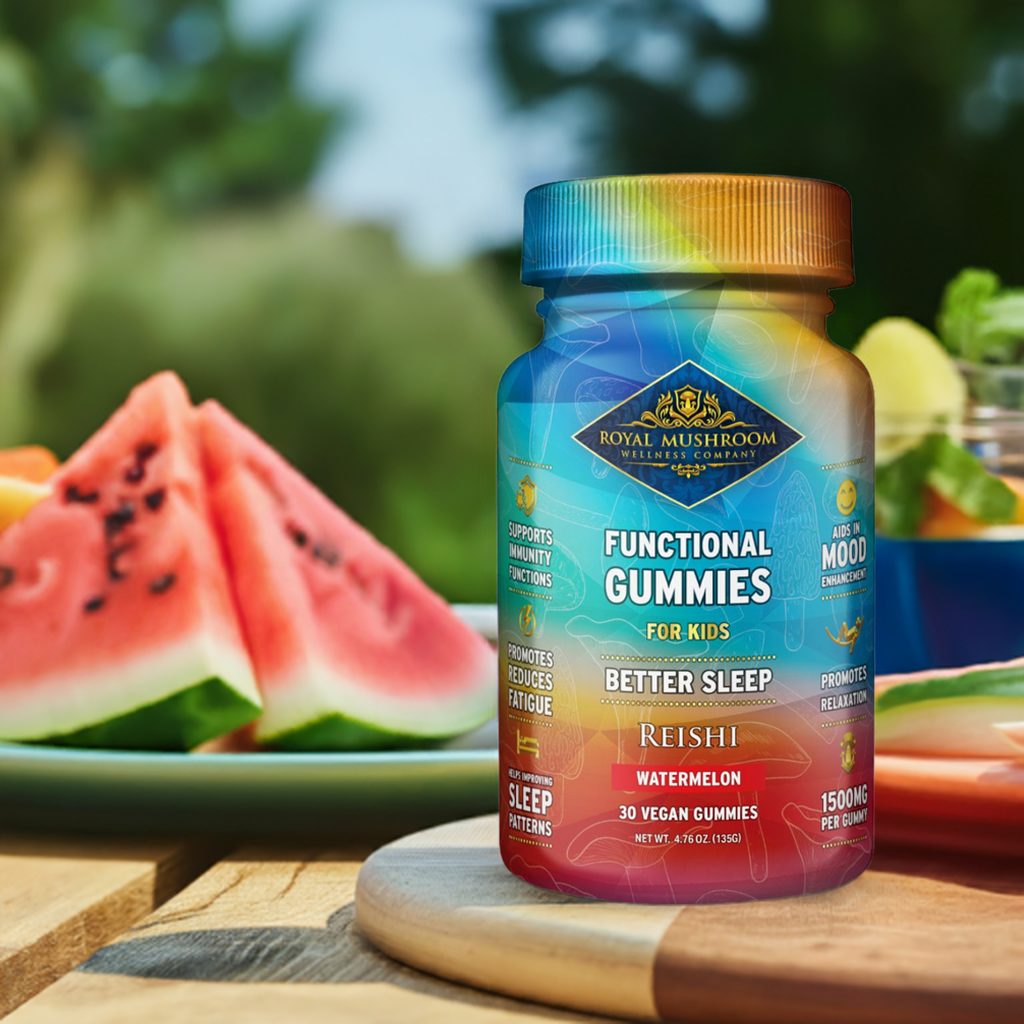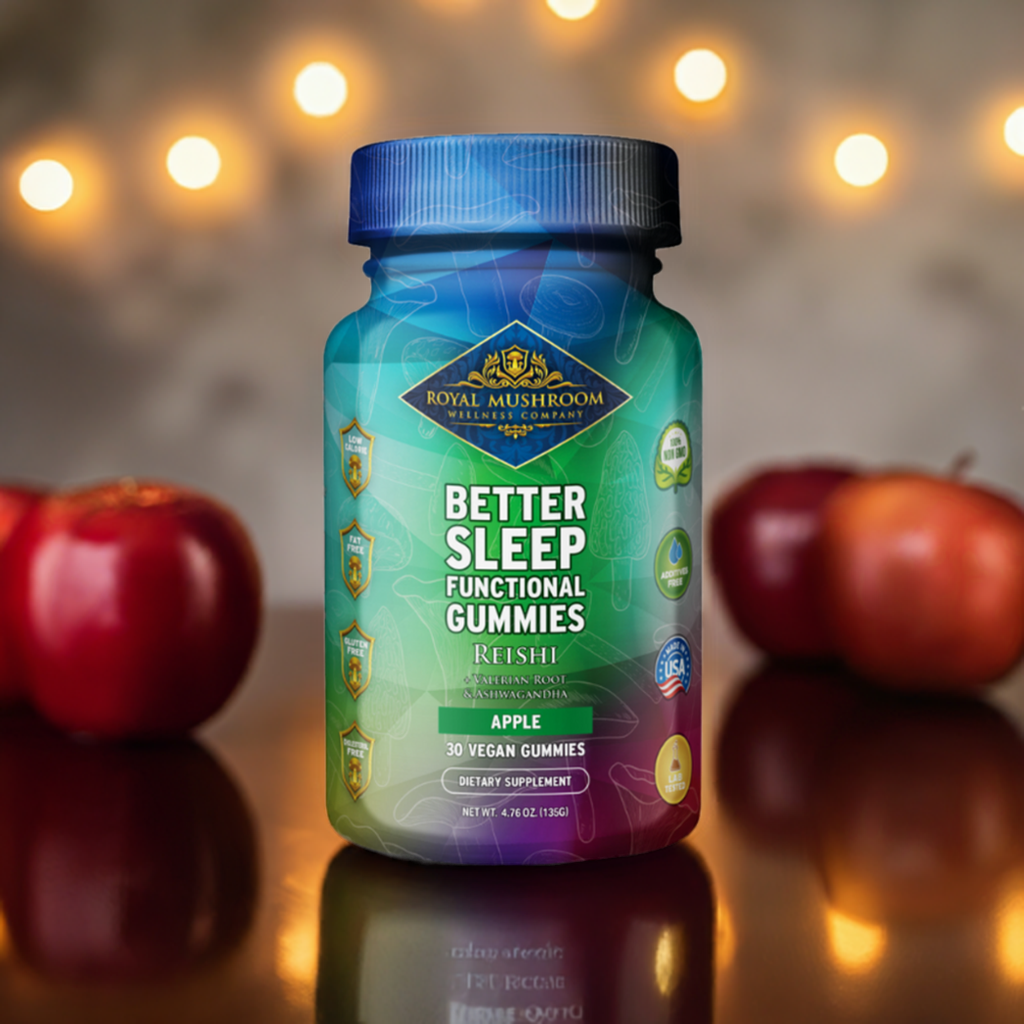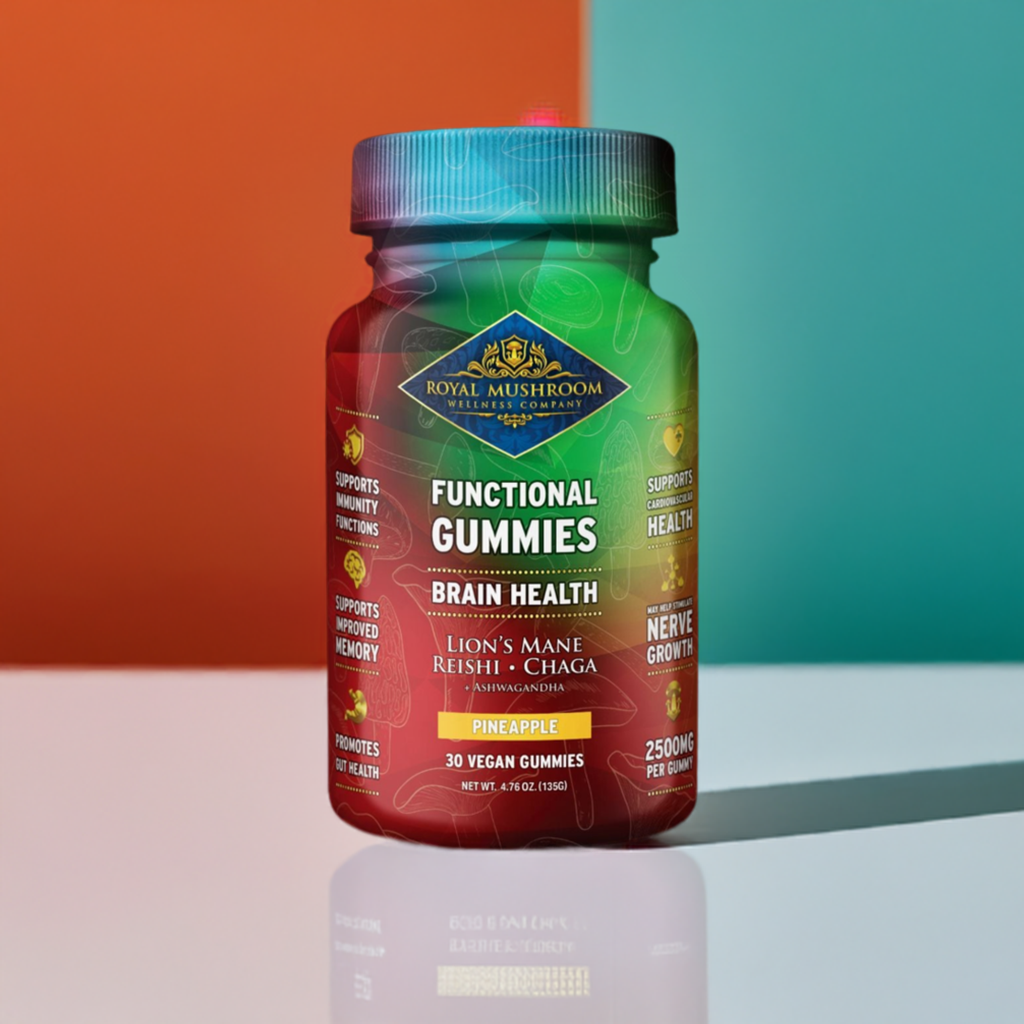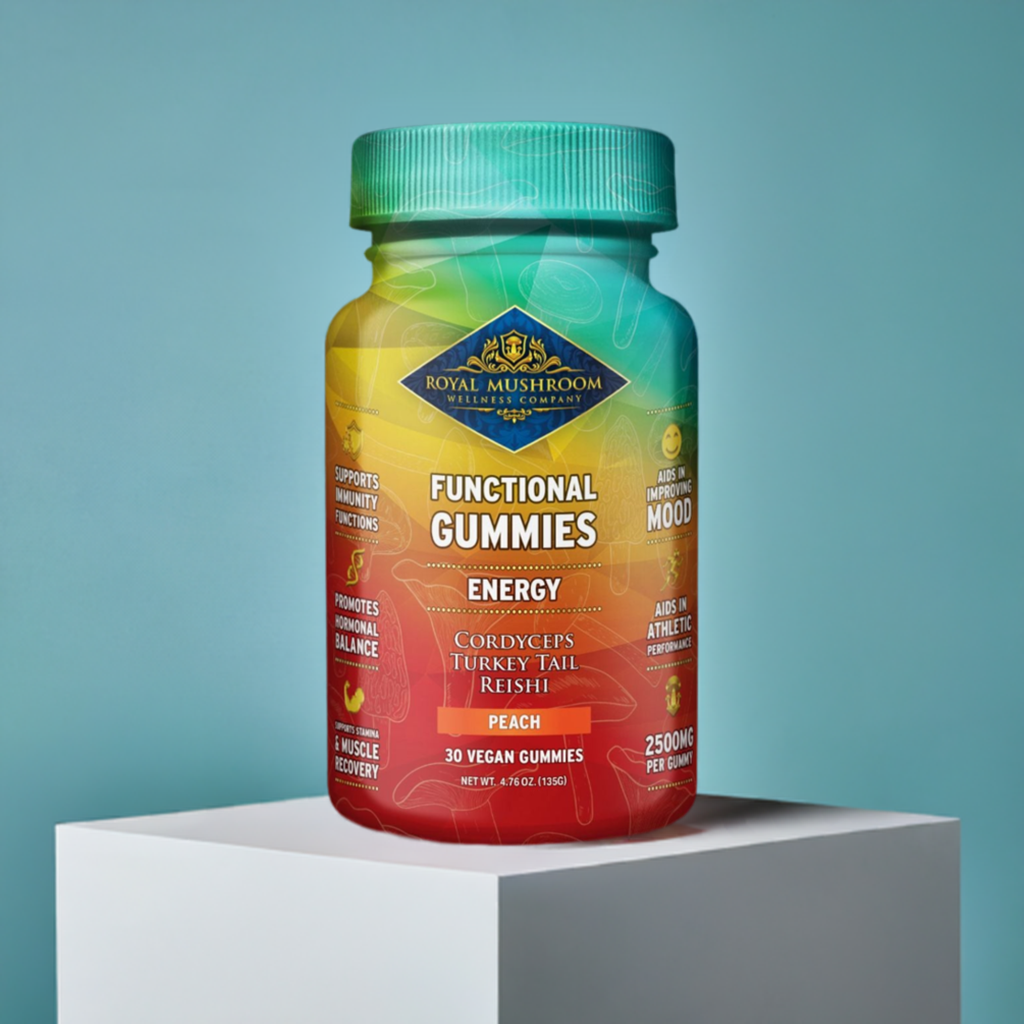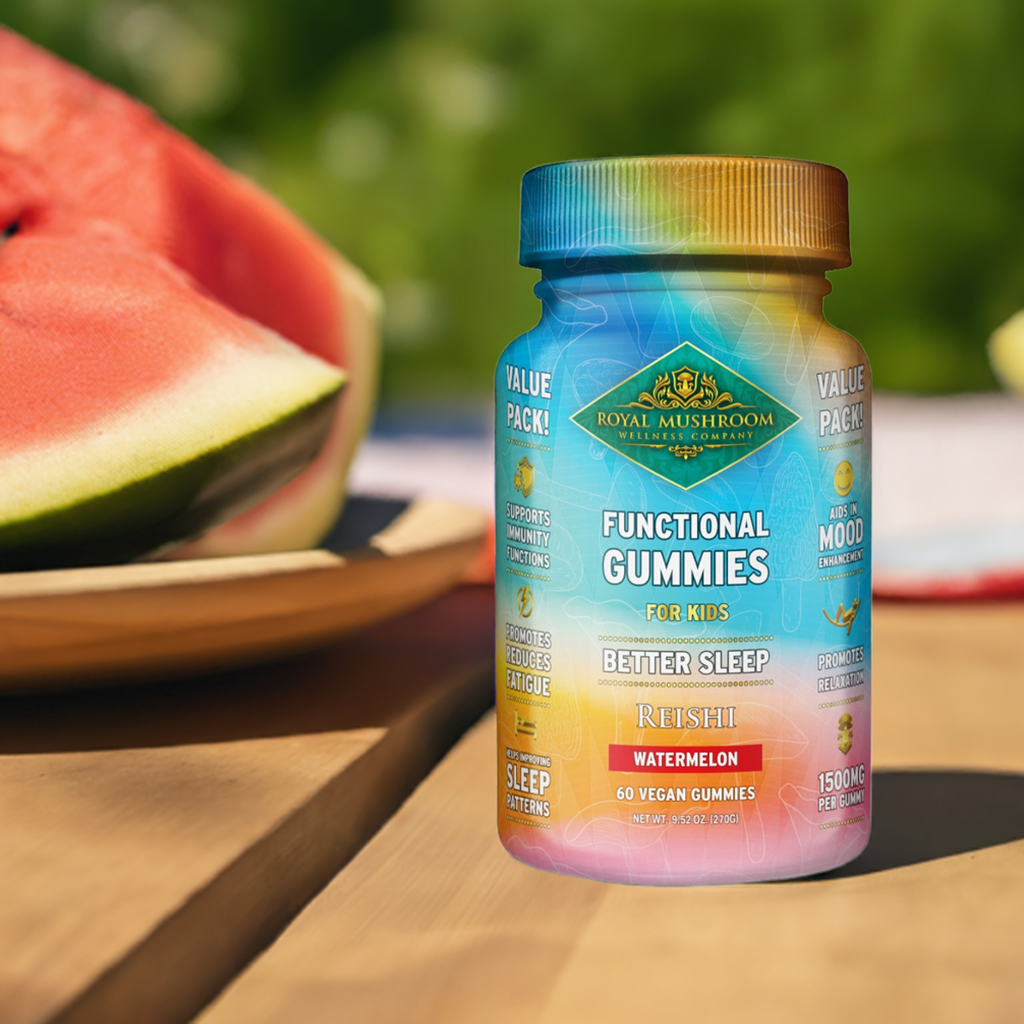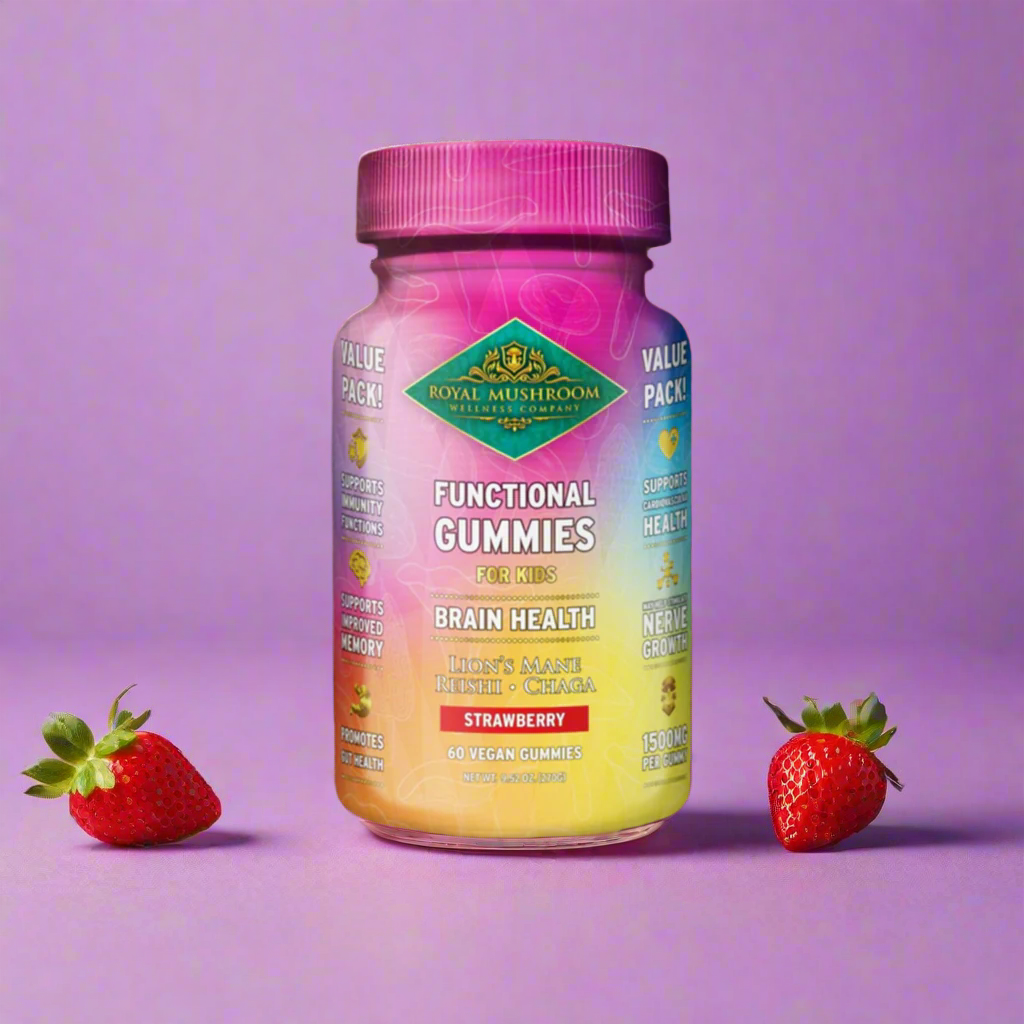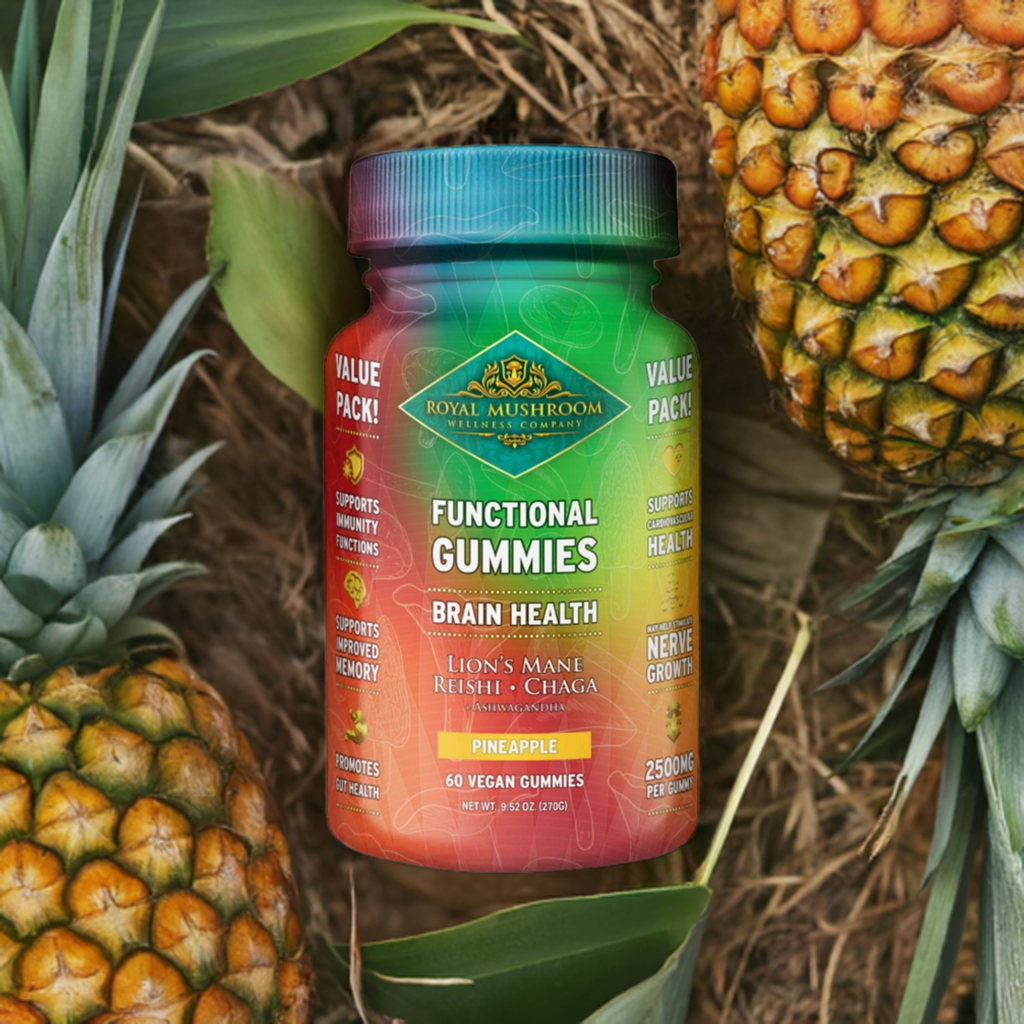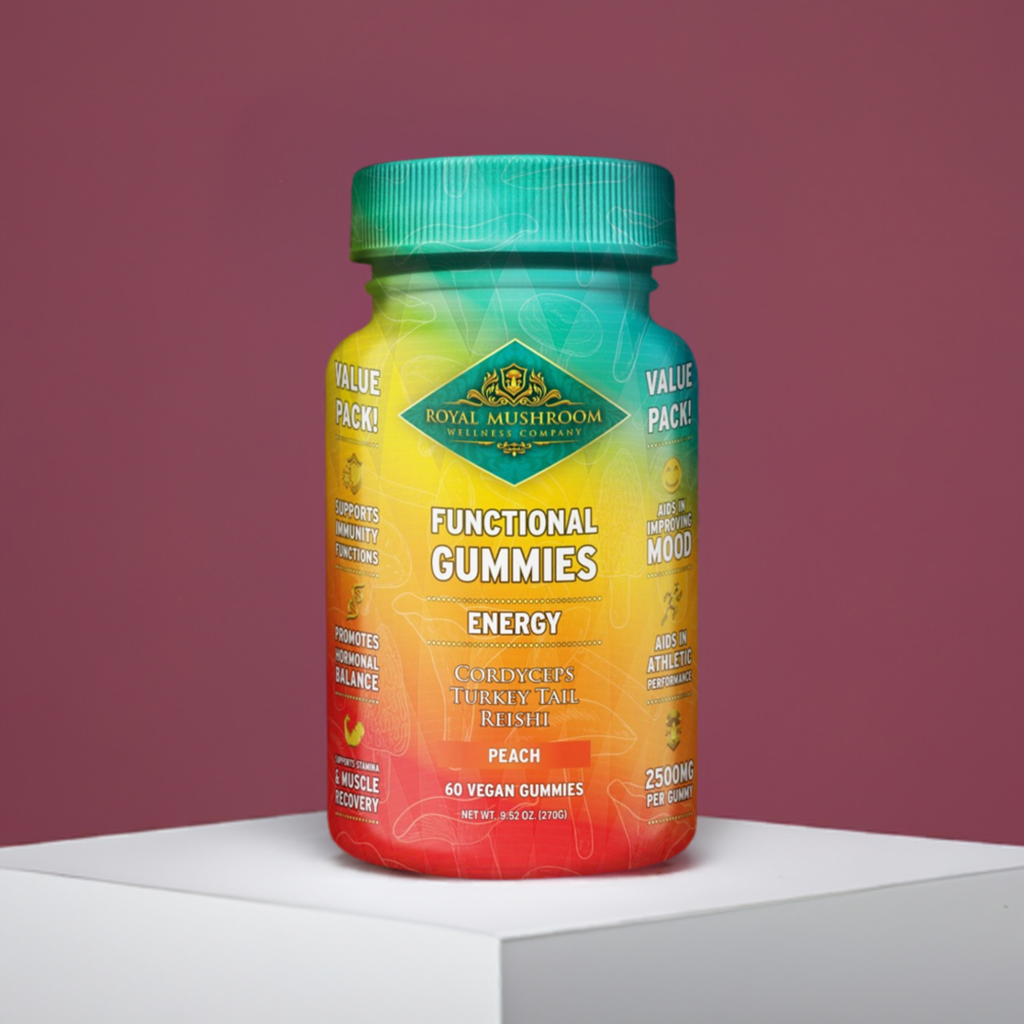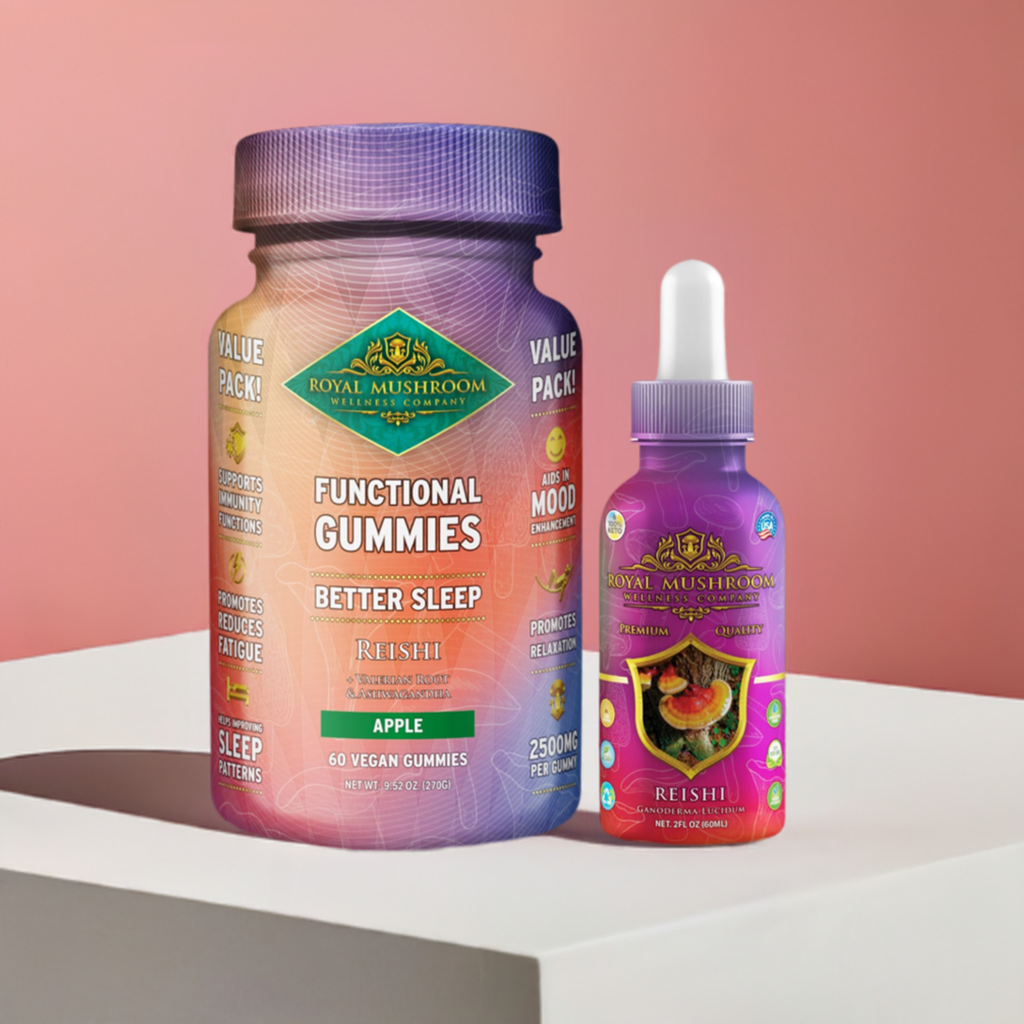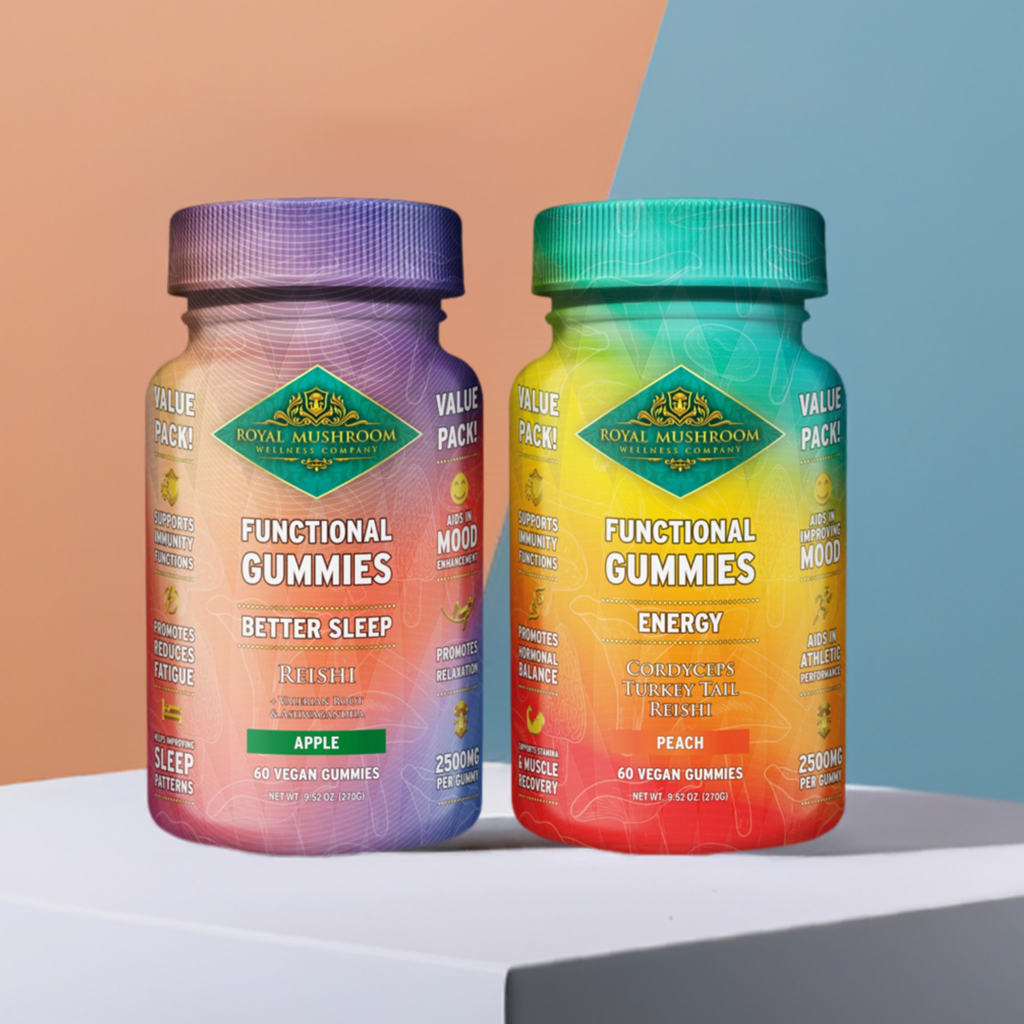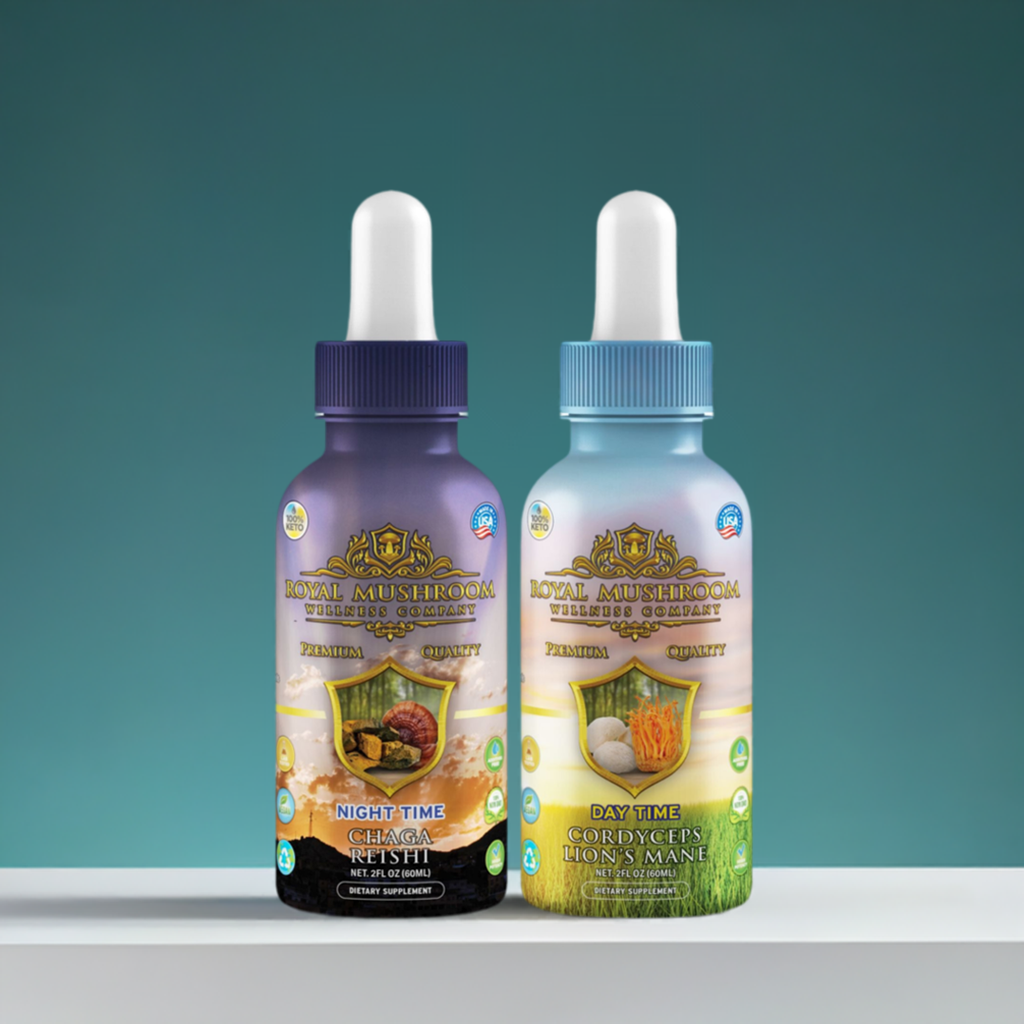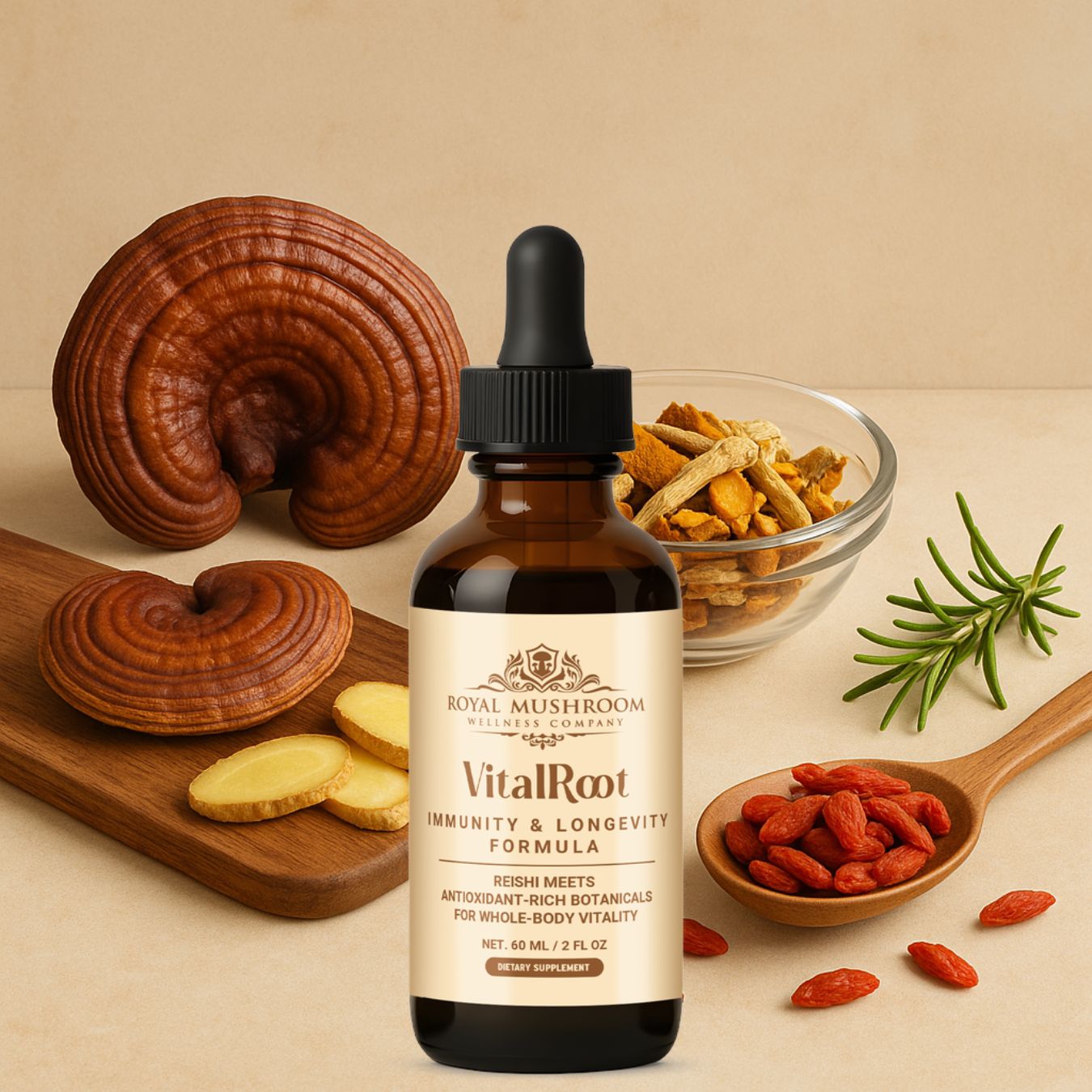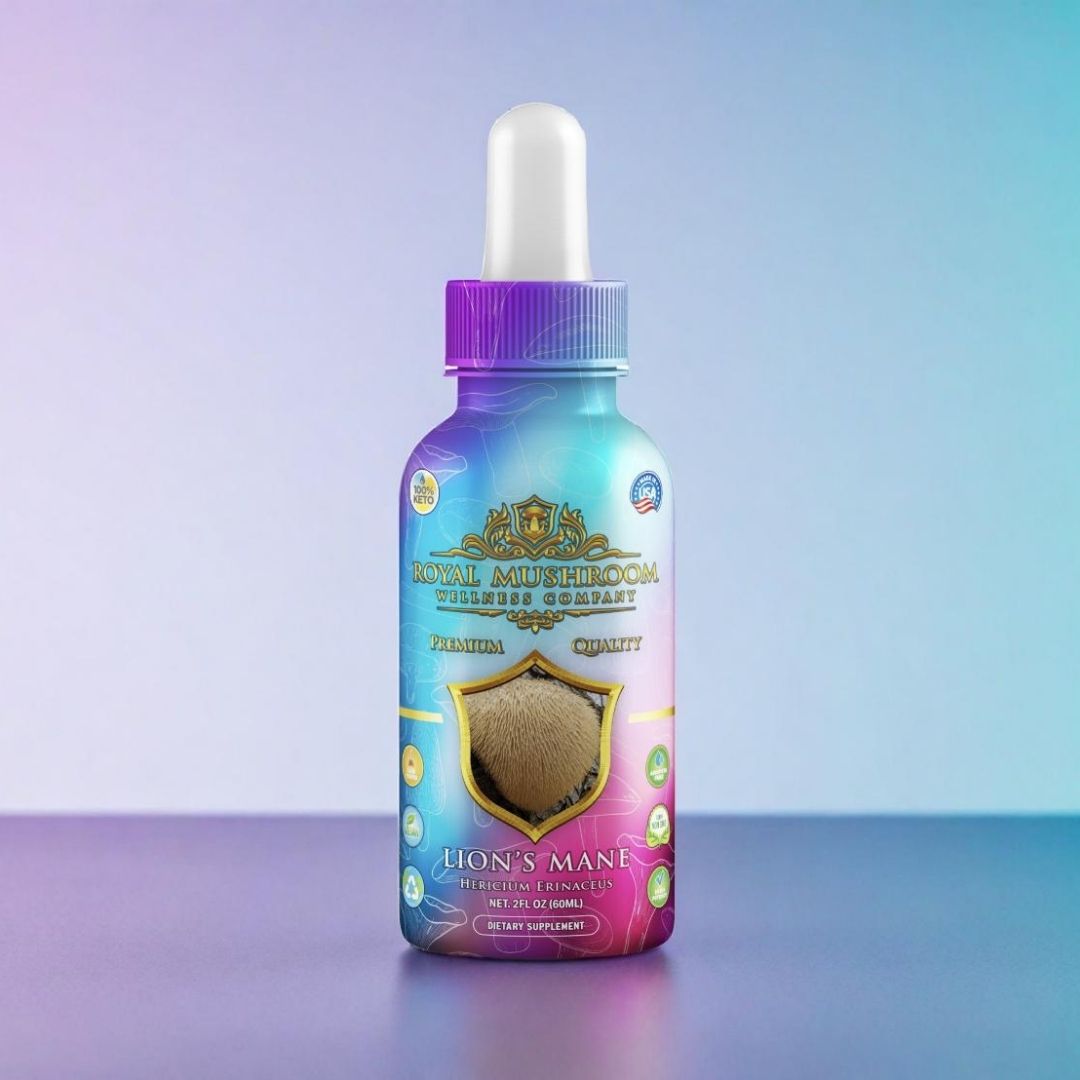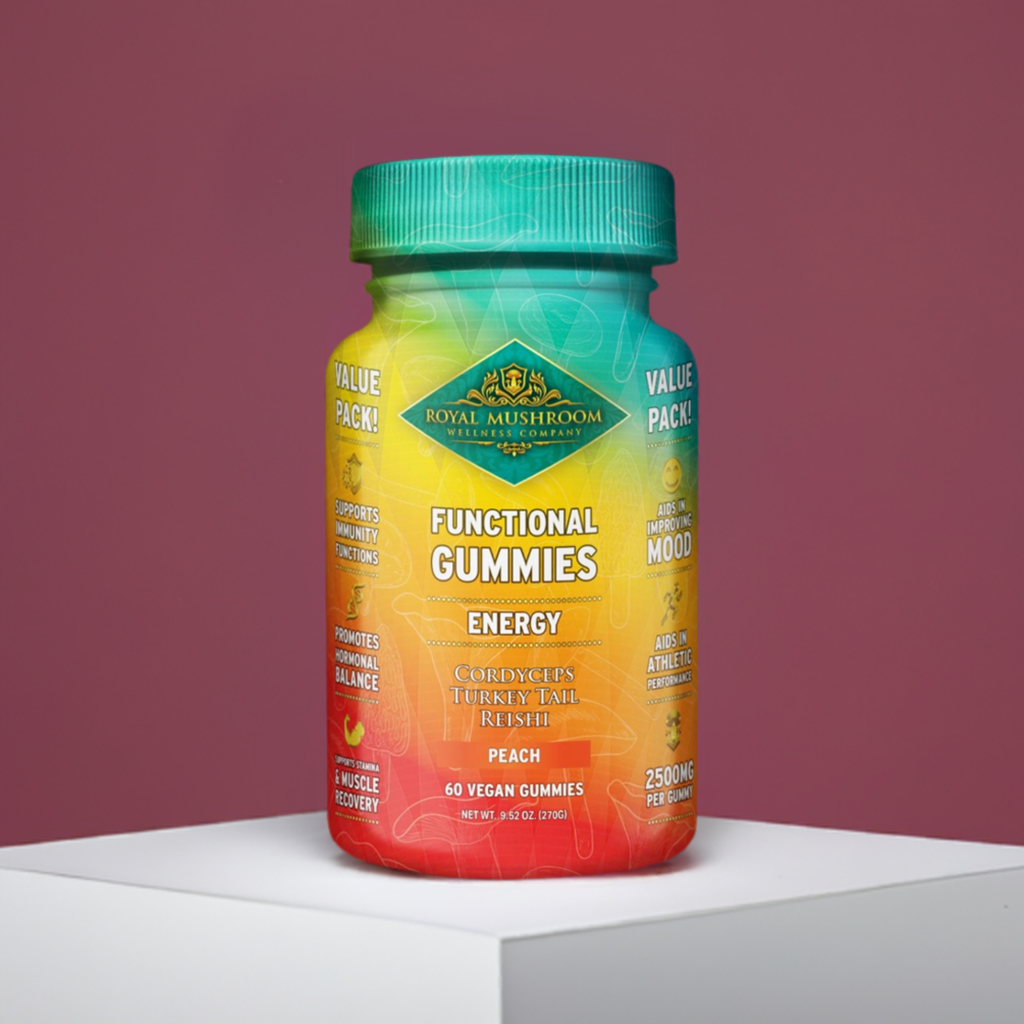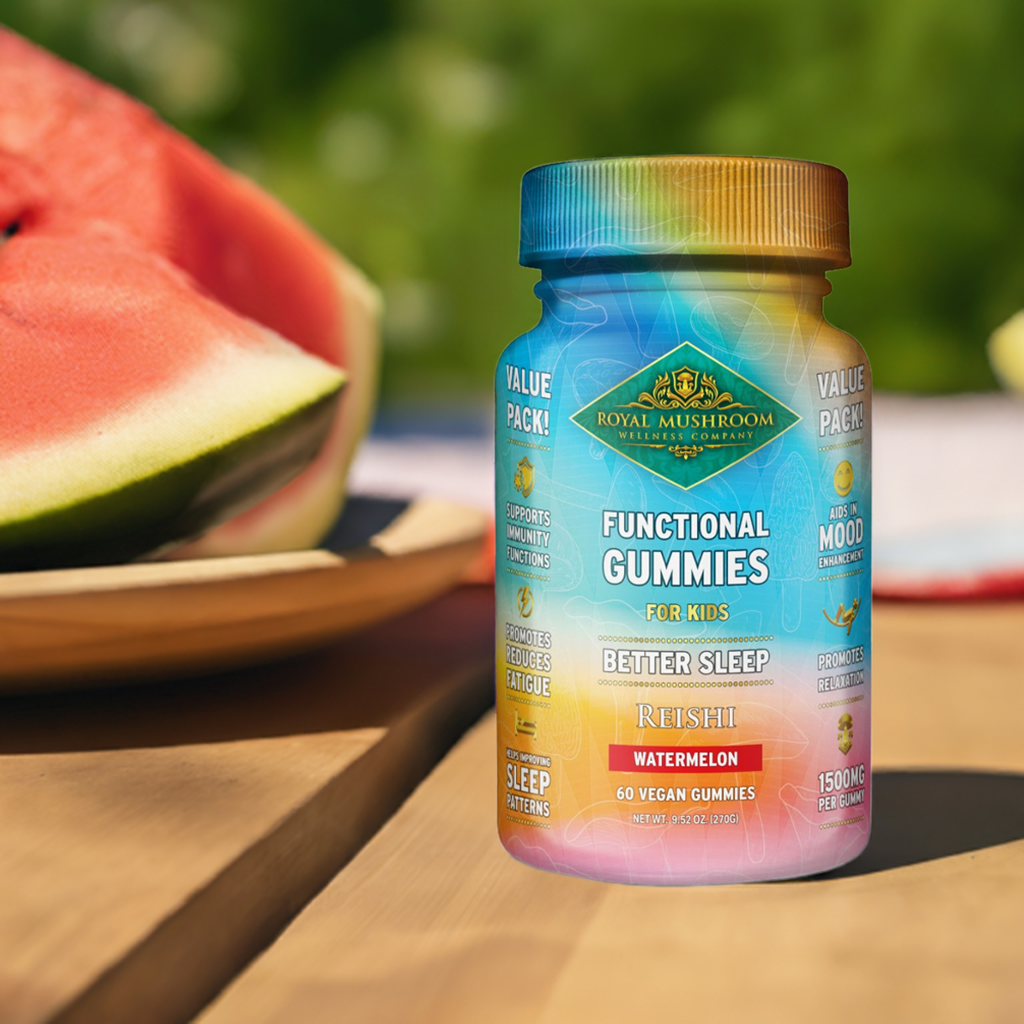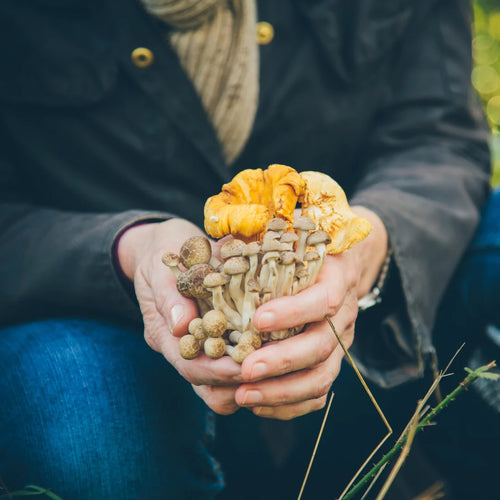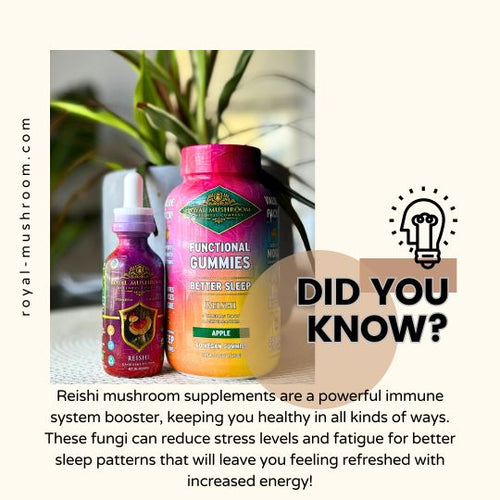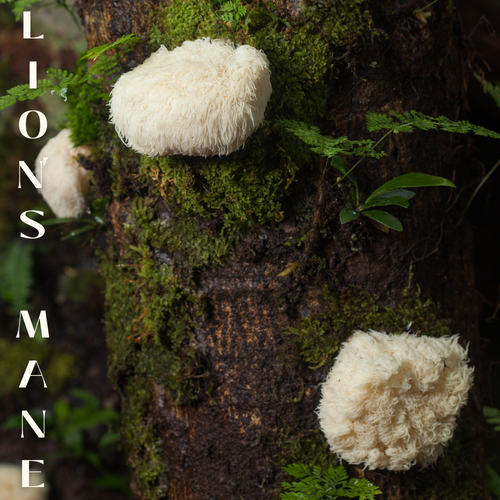Millions of people struggle with sleep disorders like insomnia, turning to various remedies for relief. Two popular options are Reishi mushroom and melatonin, but they work in fundamentally different ways. Let’s explore their unique benefits to help you make an informed decision.
What is Reishi, and How Does It Improve Sleep?
Reishi mushroom (Ganoderma lucidum), known as the “Mushroom of Immortality,” is a potent adaptogen—a natural substance that helps the body manage stress and achieve balance. This adaptogen works by:
- Reducing cortisol levels, promoting hormonal balance for better sleep.
- Supporting relaxation through active compounds like triterpenes.
- Acting as a non-habit forming sleep aid, making it ideal for long-term use.
Studies show that Reishi improves sleep quality by modulating the body’s stress response and boosting deep sleep cycles.
How Melatonin Works as a Sleep Aid
Melatonin is a hormone naturally produced by the pineal gland, signaling your body when it’s time to sleep. It is often used as a supplement to help regulate disrupted sleep cycles. However, melatonin drawbacks include:
- Potential dependency with long-term use.
- Side effects like grogginess or headaches.
- Limited effectiveness for chronic insomnia compared to natural sleep remedies.
The Benefits of Reishi for Sleep and Stress Relief
Reishi Mushroom Sleep Benefits: Adaptogens at Work
Reishi’s ability to support sleep comes from its adaptogenic properties. Unlike melatonin, which directly manipulates the sleep cycle, Reishi promotes holistic sleep support by addressing the root causes of poor sleep:
| Benefits | How Reishi Helps |
|---|---|
| Stress and Anxiety Relief | Lowers cortisol levels and enhances relaxation. |
| Sleep Quality Improvement | Enhances deep, restorative sleep cycles. |
| Immune Support | Boosts immunity, leading to better overall health. |
Long-Term Use of Reishi: A Safe Natural Sleep Aid
Because Reishi is non-habit forming, it is safe for daily use. Unlike melatonin, it does not cause withdrawal symptoms or disrupt the body’s natural hormonal balance.
Melatonin: Popular but Not Perfect
How Melatonin Affects Your Sleep Cycle
Melatonin supplements are effective for short-term use, especially for jet lag or shift work. However, it may disrupt natural sleep cycles if used improperly. Over-reliance can lead to reduced production of endogenous melatonin.
Side Effects and Drawbacks of Melatonin
While melatonin is widely used, some individuals experience negative effects such as:
- Daytime drowsiness.
- Hormonal imbalances.
- Reduced effectiveness over time, leading to insomnia relief without melatonin.
Research highlights these risks, making melatonin alternatives like Reishi a safer long-term choice.
Comparing Reishi and Melatonin for Sleep Quality
| Factor | Reishi Mushroom | Melatonin |
|---|---|---|
| Stress Reduction | Excellent | Minimal |
| Non-Habit Forming | Yes | No |
| Long-Term Safety | Very Safe | Potential Dependency |
| Effectiveness for Insomnia | High for Chronic Stress-Related Insomnia | Best for Short-Term Sleep Disruptions |
Natural Alternatives to Melatonin
Can Reishi Replace Melatonin for Better Sleep?
Yes, Reishi is a viable replacement for melatonin, especially for those seeking a natural sleep aid that addresses stress and anxiety. By promoting stress relief and sleep, it helps the body relax naturally, unlike melatonin, which forces sleep onset.
Tips for Enhancing Sleep Naturally with Adaptogens
- Incorporate Reishi: Use Reishi in gummies, tea, or capsules before bedtime.
- Establish a Bedtime Routine: Pair Reishi with meditation or calming music.
- Avoid Screens: Limit blue light exposure to regulate your circadian rhythm.
How to Choose the Right Sleep Supplement for You
Factors to Consider: Safety, Effectiveness, and Long-Term Impact
When choosing between Reishi and melatonin, consider:
- Your primary sleep challenges (e.g., stress, hormonal imbalance, insomnia).
- The potential for side effects or dependency.
- Long-term benefits versus short-term fixes.
Reishi Mushroom Tea vs Gummies: What’s Best?
Reishi is available in various forms:
- Tea: Ideal for relaxation rituals.
- Gummies: Convenient and easy to dose.
- Capsules: Perfect for those on the go.
Each format provides adaptogenic mushroom benefits tailored to your lifestyle.
FAQs About Reishi and Melatonin
What are Adaptogens for Sleep?
Adaptogens like Reishi help the body adapt to stress, balancing hormones and promoting relaxation.
Is Reishi Better Than Melatonin?
For long-term sleep health, Reishi is generally safer and more effective than melatonin, particularly for stress-induced insomnia.
Can Mushrooms Replace Melatonin for Sleep?
Yes, mushrooms for insomnia like Reishi offer a natural alternative to melatonin without dependency risks.
Conclusion: Reishi vs. Melatonin—Which Is Right for You?
Both Reishi and melatonin have their place in sleep support, but they cater to different needs. Melatonin is effective for short-term use, while Reishi offers a holistic sleep solution that addresses stress and supports overall wellness. For a safe sleep solution that improves quality without side effects, Reishi stands out as the clear winner.
By choosing the right supplement and adopting a healthy bedtime routine, you can achieve restful, rejuvenating sleep naturally.
